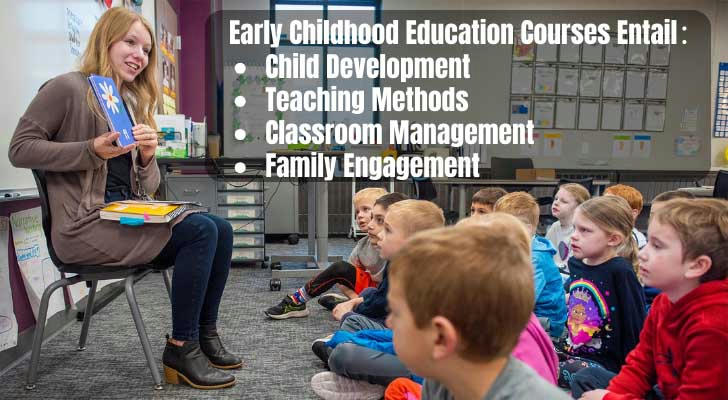Government and Non-Profit Certified Early Childhood Education Courses: A Gateway to High-Paying Careers
The early childhood education industry is booming, with demand for qualified teachers on the rise. According to the U.S. Bureau of Labor Statistics (BLS), preschool teacher jobs are projected to grow by 3% from 2022 to 2032. This high-paying and rewarding career is within reach, thanks to government agencies and non-profits offering certified courses and financial support.

What Do Early Childhood Education Courses and Certifications Entail?
Early childhood education courses are designed to equip teachers with the knowledge and skills needed to support young learners. Key components of these courses include:
Child Development: Understanding the physical, emotional, social, and cognitive growth stages of children.
Teaching Methods: Learning strategies for engaging young learners through play-based and structured activities.
Classroom Management: Developing techniques to create a safe, inclusive, and productive learning environment.
Family Engagement: Building partnerships with families to support children’s learning and development.
To become certified, candidates must:
Complete required coursework and training hours, often including 120 hours of formal education.
Pass a certification exam, such as the Child Development Associate (CDA) assessment, which evaluates knowledge and skills.
Gain hands-on experience through internships or practicums, typically requiring 480 hours of work experience.
Meet state-specific requirements, which may include background checks, health screenings, and continuing education.
Where to Find Certified Early Childhood Education Courses

Several organizations provide certified courses and support to help aspiring teachers achieve their goals:
Child Care Aware of America: Offers training resources, scholarship opportunities, and state-specific guidance. Visit Child Care Aware
Council for Professional Recognition: Provides the CDA certification, a nationally recognized credential for early childhood educators. Learn more
Head Start Programs: Funded by the federal government, these programs offer training, employment opportunities, and professional development. Explore Head Start
T.E.A.C.H. Early Childhood®: Provides scholarships for early childhood education degrees and certifications, helping teachers advance their careers. Visit T.E.A.C.H.
How to Get Started: A Step-by-Step Guide
Research State Requirements: Visit your state’s education department website to understand specific certification requirements.
Choose a Program: Select a course or certification program that aligns with your career goals and budget.
Apply for Financial Aid: Explore scholarships and grants offered by organizations like T.E.A.C.H. Early Childhood® and Child Care Aware of America.
Complete Training: Enroll in courses, complete required hours, and gain hands-on experience through internships.
Pass Certification Exams: Prepare for and pass exams like the CDA assessment.
Apply for Jobs: Use resources like Head Start and local childcare centers to find job opportunities.
Success Stories

Maria Gonzalez, a single mother, enrolled in a CDA certification course through the Council for Professional Recognition. With financial aid from T.E.A.C.H. Early Childhood®, she completed her training and secured a job as a preschool teacher, earning $45,000 annually. Maria credits the program for helping her achieve financial stability while pursuing her passion for teaching. She now mentors other aspiring teachers, guiding them through the certification process.
James Carter utilized resources from Child Care Aware of America to complete his early childhood education coursework. After passing the CDA exam, he was hired by a Head Start program, earning $50,000 per year. James emphasizes the importance of persistence and leveraging available resources to achieve his dream. He now volunteers with local non-profits to help others access similar opportunities.
Conclusion
A career in early childhood education is within reach, thanks to government agencies and non-profit organizations that offer certified courses and financial support. These programs not only reduce barriers but also provide the skills and credentials needed to succeed in this high-demand field. If you’re passionate about shaping young minds, explore resources from Child Care Aware, the CDA Council, and Head Start. Apply today and take the first step toward a high-paying and fulfilling career in early childhood education!
